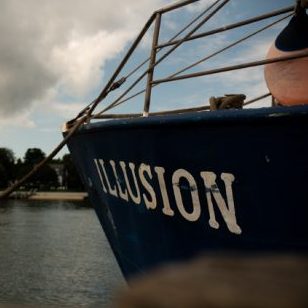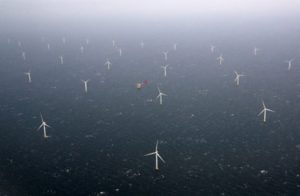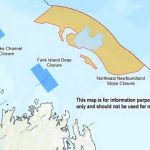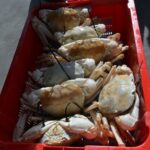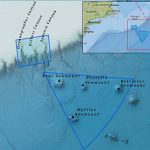Tag Archives: Mark Phillips
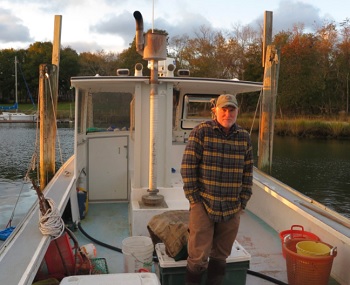
Opening day is a no show for scallops and baymen
Shelter Island’s town dock was deserted, not what you expect on opening day for bay scallop fishing. A few minutes later, bayman John Kotula arrived, but not to go scalloping. “I don’t know what I’m going to do,” Kotula said, ignoring a stiff wind and soul-sapping 39 degrees.,, Keith and Louise Clark of Shelter Island renewed the license for the scallop-processing facility in their basement, an act that was equal parts stubbornness and ungrounded optimism. The death of the adult bay scallops in 2019 was shocking, but hope truly eroded in August of this year when researchers and baymen documented a second mass mortality. >click to read< 07:57
One day into the new season, and there are few if any adult scallops – For Ms. Phillips and her husband, Mark, a commercial fisherman who seems to work around the clock all year long, their family-owned seafood business on the creek in Greenport diversified long ago to help them weather situations like this year’s scallop crop. “But this lack of scallops will really hurt so many people who each year depend on them for their income.” >click to read<
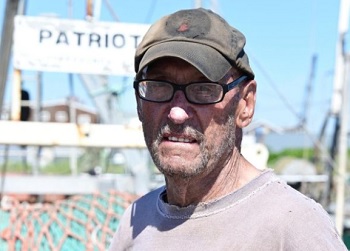
Long Island Coronavirus Hangover: Fishermen’s business remains in the doldrums even as restaurants reopen
While many local fishermen sell to local retailers, a steady local business even through the pandemic, the lion’s share of local fish go to companies that distribute to restaurants throughout the region and across the country. Three months of lockdowns over the coronavirus has backed up the market for the products, leaving warehouses for local frozen fish such as squid fully stocked, while drastically reducing demand for local clams and oysters..,, The summer is normally a prime time for fishing trawlers that harvest squid, said Greenport commercial fisherman Mark Phillips, but the market has been backed up by months of shutdowns and a closure of some export markets, including to China. Phillips said he was hopeful the start of restaurant reopening increases demand for squid, his primary fishery right now. >click to read< 07:47
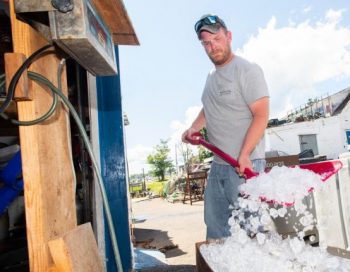
Fishing is a family business – Three couples know everybody needs to pitch in to make a living
Long Island’s fishing families know how to adapt. They have to if they want to keep making their living from the water. Many have succumbed to the sea of quotas and regulations. Fewer and fewer are hanging on. In the past eight years, the number of commercial food fish licenses has dropped by double digits —11 percent — from 1,030 in 2018 to 916 so far this year, state data show.,, Most of the families still in commercial fishing run mom-and-operations, Brady said. “Some can go back 15 generations, some have been here since the ’70s,” she said, “and some are just starting out” The Phillipses, the Osinskis, and the Lofstads. >click to read<08:51
Georges Bank said to be ‘paved with fluke! Fishermen Assail NOAA Quotas – Schumer fears major job losses
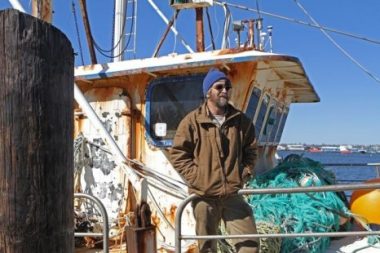 Commercial fishermen on the draggers seen offshore last week took advantage of calmer seas and the State Department of Environmental Conservation’s raising of the daily limit on fluke from 70 to 210 pounds. The higher limit was in effect from Dec. 18 through Friday as the state’s annual quota for the fish, highly sought by commercial and recreational fishermen alike, had not been reached.,, Mark Phillips, who fishes on the F/V Illusion out of Greenport, was once among the largest harvesters of fluke in the state, landing a few hundred thousand pounds per year, by his count. The problem, Mr. Phillips said, is that stock assessments are inaccurate because NOAA conducts surveys — such as with its ship the Henry B. Bigelow, which collects data in waters from Maine to North Carolina — when fluke are migrating from undersea canyons to inshore waters. Read the story here 14:49
Commercial fishermen on the draggers seen offshore last week took advantage of calmer seas and the State Department of Environmental Conservation’s raising of the daily limit on fluke from 70 to 210 pounds. The higher limit was in effect from Dec. 18 through Friday as the state’s annual quota for the fish, highly sought by commercial and recreational fishermen alike, had not been reached.,, Mark Phillips, who fishes on the F/V Illusion out of Greenport, was once among the largest harvesters of fluke in the state, landing a few hundred thousand pounds per year, by his count. The problem, Mr. Phillips said, is that stock assessments are inaccurate because NOAA conducts surveys — such as with its ship the Henry B. Bigelow, which collects data in waters from Maine to North Carolina — when fluke are migrating from undersea canyons to inshore waters. Read the story here 14:49
Fishermen Oppose Commercial Ban – national marine monument exclusion is unfair and unnecessary
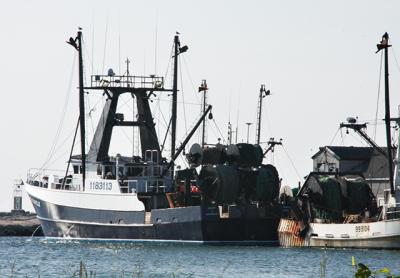 Fishermen believe a monument in the Mid-Atlantic is unnecessary and allege it was not based on science but pressure from nongovernmental environmental groups, including the Pew Charitable Trusts and the National Resources Defense Council. To exclude commercial fishermen while allowing recreational fishing makes no sense, fishermen contend. They also claim the monument will not only fail to prevent harm to non-target species such as pilot whales, but will increase interactions with them. “It’s a huge blow,” Hank Lackner of the Jason and Danielle, a trawler based in Montauk, said. “And there was no need for it.” Mark Phillips, who fishes for fluke, squid, and haddock from the Greenport-based Illusion, agreed. “The funny thing, there is no coral there. It’s all sand and mud, and I’ve dragged all of that bottom. A handful of boats out of Montauk have dragged it all. There is no coral, period,” he said. Scientists from the National Oceanic and Atmospheric Administration agree that many of the areas in which trawlers fish are devoid of coral, according to Ms. Brady. Read the article here 12:08
Fishermen believe a monument in the Mid-Atlantic is unnecessary and allege it was not based on science but pressure from nongovernmental environmental groups, including the Pew Charitable Trusts and the National Resources Defense Council. To exclude commercial fishermen while allowing recreational fishing makes no sense, fishermen contend. They also claim the monument will not only fail to prevent harm to non-target species such as pilot whales, but will increase interactions with them. “It’s a huge blow,” Hank Lackner of the Jason and Danielle, a trawler based in Montauk, said. “And there was no need for it.” Mark Phillips, who fishes for fluke, squid, and haddock from the Greenport-based Illusion, agreed. “The funny thing, there is no coral there. It’s all sand and mud, and I’ve dragged all of that bottom. A handful of boats out of Montauk have dragged it all. There is no coral, period,” he said. Scientists from the National Oceanic and Atmospheric Administration agree that many of the areas in which trawlers fish are devoid of coral, according to Ms. Brady. Read the article here 12:08
Thursday: Challenges facing New England’s commercial fishing industry topic of public forum at RI College
A panel of government regulators, scientists, environmental advocates and fishermen will try to answer questions about the future of one of New England’s most iconic and important industries at a forum this Thursday. The event, which is free and open to the public, runs from 6 to 8 p.m. at Sapinsley Hall in the Nazarian Center for the Performing Arts at Rhode Island College. The panel will include: John Bullard, regional administrator with NOAA’s Northeast Regional Office; Graham Forrester, professor in the Department of Natural Resources Science at the University of Rhode Island; Erica Fuller, senior associate attorney with Earth Justice; Matt Tinning, senior director, U.S. Oceans Program, Environmental Defense Fund; David Goethel, captain and owner of the Ellen Diane; Mark Phillips, captain and owner of FV Illusion; and Daniel Georgianna, Chancellor professor of economics at the University of Massachusetts Dartmouth. Read the rest here 12:40
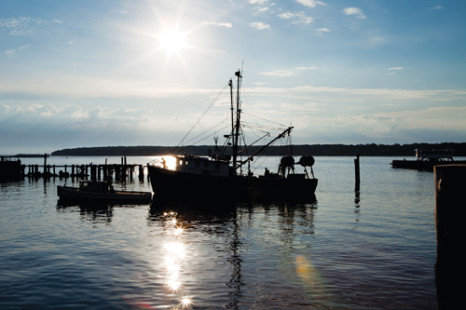
The loss of Greenport’s fishing fleet is another sign of a changing village
Just a few decades ago, Greenport Village looked very different. Fishermen describe as many as 50 towering fishing vessels crammed into the deepwater port, making pit stops at Claudio’s dock before their offshore expeditions in the Atlantic. The docks were swarmed with fishing crews unloading their stock for sale at fish markets across the East Coast. But today, the dozens of captains whose boats once fed Greenport’s fishing industry have either fled for other ports or been scuppered altogether. Read the article here 09:17
Electronic Monitoring versus At Sea Observers – Technology buoys fishermen devastated by cod’s collapse
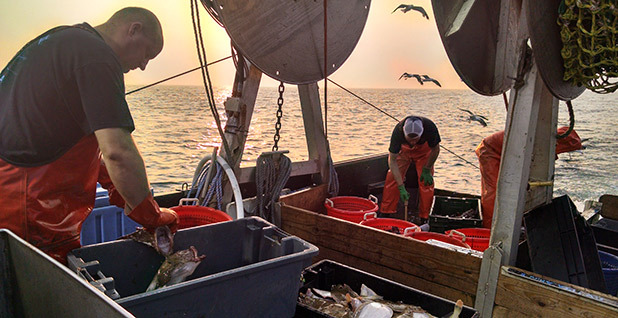 By the end of this year, NMFS wants groundfish fishermen to pay for their own “at-sea monitors,” the independent observers who collect data on bycatch and ensure fishermen follow the rules..”It’s the people that we’re dealing with that we trust,” said . “I know that John is trying to do the best he can, and I know the people he’s got working for him are trying to do the best they can.” As for the rest of NOAA? “Would you trust someone who has screwed you nonstop your whole life?” he said. “Thirty-five years ago, I thought it was different. I don’t anymore.” Read the rest here 12:09
By the end of this year, NMFS wants groundfish fishermen to pay for their own “at-sea monitors,” the independent observers who collect data on bycatch and ensure fishermen follow the rules..”It’s the people that we’re dealing with that we trust,” said . “I know that John is trying to do the best he can, and I know the people he’s got working for him are trying to do the best they can.” As for the rest of NOAA? “Would you trust someone who has screwed you nonstop your whole life?” he said. “Thirty-five years ago, I thought it was different. I don’t anymore.” Read the rest here 12:09
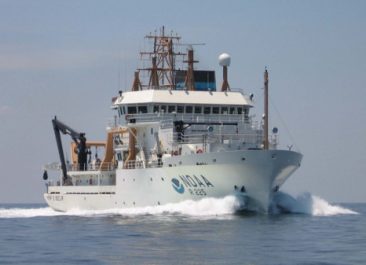
New England Stock Assessments – If it’s the same, it will never be different, Don Cuddy
We are having a serious problem in New England with the performance of the models used in fishery management. To remedy a situation that, along with some other factors, has led to the current crisis in the groundfish industry, we need new data … and maybe we need new models.,, Getting better data is a theme familiar to anyone with connections to the fishing industry in New England. It is central to the mission at the Center for Sustainable Fisheries and was the focus of the forum CSF sponsored at the New Bedford Whaling Museum in May. Read the rest here 09:03






